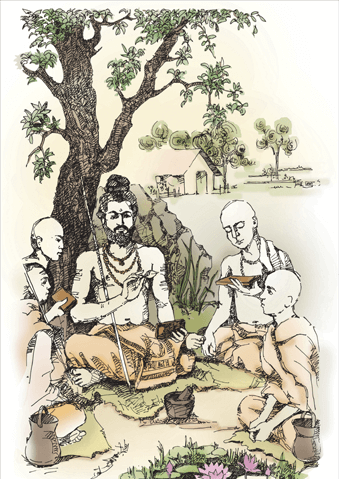The Role of Ayurveda in Stress Management and Mental Clarity
The Role of Ayurveda in Stress Management and Mental Clarity
Blog Article
Why You Need to Get It: The Transformative Power of Ayurveda Explained
Ayurveda, a classic system of medicine, provides an unique viewpoint on health that goes beyond simple signs and symptom management. By highlighting the elaborate balance between spirit, body, and mind, it offers a framework for understanding specific constitution through the concept of doshas. This tailored method not only addresses physical conditions yet also grows spiritual and psychological health. As we explore the core concepts and techniques of Ayurveda, it comes to be evident that its transformative potential prolongs much past standard health standards-- increasing the question of just how it might improve your understanding of wellness.
Comprehending Ayurveda's Core Principles
Ayurveda, commonly referred to as the "scientific research of life," is rooted in an alternative strategy to wellness that links the physical, mental, and spiritual dimensions of health. Central to Ayurveda are the ideas of the five elements, called "Pancha Mahabhuta," which make up planet, water, fire, ether, and air. These components combine to form 3 primary powers, or "doshas": Vata, Pitta, and Kapha, each representing various combinations of mental and physical qualities.


Understanding these doshas is important for identifying a person's distinct constitution, or "Prakriti," which overviews individualized health strategies. Ayurveda highlights equilibrium, advocating for a lifestyle that balances these powers through diet, herbal treatments, and day-to-day regimens. Moreover, Ayurvedic concepts insist that health and wellness is not merely the absence of condition however a state of optimal vigor.
The technique of mindfulness and self-awareness is fundamental, motivating individuals to develop a much deeper link with their bodies and the setting. By identifying the interplay of emotional and physical factors, Ayurveda promotes an extensive understanding of health that encourages people to organize their wellness, promoting a course towards holistic improvement.
Advantages of Ayurvedic Practices
Consistently integrating Ayurvedic techniques right into life can yield a wide range of advantages that boost total well-being. These classic customs concentrate on achieving consistency within the mind, body, and spirit, leading to enhanced physical health and wellness, mental quality, and emotional balance.
One substantial benefit of Ayurvedic practices is their capacity to promote digestive health and wellness. Customized dietary suggestions, based upon a person's dosha, can maximize nutrition absorption and reduce gastrointestinal concerns. Additionally, Ayurvedic herbs and spices, such as turmeric and ginger, have anti-inflammatory buildings that can assist in the prevention and administration of chronic illness.
Moreover, Ayurvedic practices stress the value of daily routines, known as dinacharya, which promote stability and predictability in one's life. This consistency can lower stress and anxiety levels and boost efficiency. Mindfulness strategies, consisting of meditation and yoga exercise, not just cultivate mental durability but also improve psychological policy.
Finally, by fostering a link to nature and emphasizing all natural living, Ayurveda encourages people to participate in self-care and cultivate a sense of neighborhood. Generally, the combination of Ayurvedic methods can result in a much more well balanced, dynamic, and fulfilling life.
Key Parts of Ayurvedic Healing
At the core of Ayurveda lie 3 primary components: the idea of doshas, the emphasis on balance, and the holistic strategy to wellness. The doshas-- Vata, Pitta, and Kapha-- represent the distinct combinations of the 5 elements that control individual constitutions.
Balance is a repeating motif in Ayurvedic recovery, showing the belief that health arises from consistency within the body and in between the private and their setting. Disturbance of this equilibrium can cause condition, demanding targeted interventions to recover stability.
Moreover, Ayurveda accepts an all natural strategy, considering physical, psychological, and spiritual facets of health. This comprehensive viewpoint recognizes that emotional health and lifestyle selections substantially affect physical wellness.
Integrating Ayurveda Into Life
Integrating the concepts of Ayurveda right into life can significantly enhance overall health and advertise a deeper link to one's body and setting. By embracing Ayurvedic techniques, people can cultivate balance and harmony within themselves, adjusting to their one-of-a-kind constitution or dosha.

Integrating herbal remedies and all-natural ingredients right into personal treatment routines can better enhance Ayurvedic concepts. For example, utilizing oils for self-massage, referred to as abhyanga, advertises flow and leisure. In addition, integrating meditation or yoga exercise can improve mental clearness and emotional stability, promoting an alternative approach to wellness.
Lastly, recognizing environmental variables, such as climate and seasonal modifications, makes it possible for individuals check to change their way of livings as necessary, guaranteeing that their methods stay helpful and reliable - Ayurveda. By weaving these principles right into everyday life, one can experience profound advantages, resulting in a much more well balanced and fulfilling presence
Individual Changes Via Ayurveda
The application of Ayurvedic concepts right into everyday regimens commonly brings about substantial personal makeovers, as people start to experience profound changes in both physical and mental wellness. By embracing practices such as nutritional modifications, herbal supplementation, and conscious meditation, many report enhanced energy degrees, enhanced food digestion, and improved psychological strength.
Individuals commonly locate that the alternative method of Ayurveda addresses not just signs and symptoms, however underlying discrepancies within the mind and body. For circumstances, embracing a personalized nutritional program based on one's dosha can lead to weight administration, reduced inflammation, and much better total vigor - Ayurveda. The consolidation of day-to-day self-care rituals, such as oil pulling or Abhyanga (self-massage), cultivates a deeper connection to one's body, advertising self-awareness and supporting psychological wellness.
As specialists dig deeper right into Ayurvedic approach, they often discover a restored feeling of purpose and quality in their lives. This transformative trip motivates people to grow mindfulness, leading to much healthier connections and a greater recognition for the existing minute. Eventually, Ayurveda equips people to organize their health, helping with a meaningful and enduring change in their visit the website lives.
Conclusion
The transformative power of Ayurveda exists in its all natural approach, promoting consistency amongst spirit, body, and mind. By recognizing individual doshas and applying customized techniques, Ayurveda cultivates optimum wellness and psychological resilience. Its assimilation right into day-to-day live urges conscious living and deeper connections within communities. Inevitably, accepting Ayurveda can bring about extensive personal changes, enhancing general health and facilitating a much more well balanced and unified existence. The concepts of Ayurveda provide valuable understandings for growing a satisfying and vivid life.
As we check out the core concepts and methods of Ayurveda, it becomes noticeable that its transformative prospective expands much beyond traditional health paradigms-- raising the concern of how it might improve your understanding of wellness.
Ayurveda, usually defined as the "scientific research of life," is rooted in a holistic approach to wellness that links the physical, mental, and spiritual measurements of wellness. At the core of Ayurveda click here now exist three main parts: the concept of doshas, the emphasis on balance, and the alternative technique to wellness. Inevitably, Ayurveda encourages people to take fee of their health, helping with a lasting and significant transformation in their lives.
By identifying private doshas and implementing tailored techniques, Ayurveda fosters ideal wellness and emotional durability.
Report this page